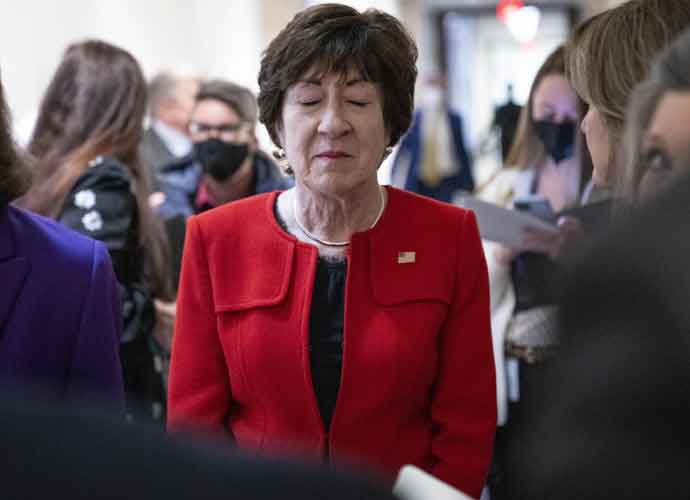GOP Senators Block Democratic-Led IVF Bill Amid Growing Partisan Tensions Over Reproductive Rights
Senate Republicans blocked a bill aimed at safeguarding nationwide access to in vitro fertilization. This move was part of a Democratic effort to underscore the electoral divergence on reproductive rights in anticipation of the November election.
In a vote of 48-47, failing to meet the needed 60-vote threshold to progress the legislation, just two Republicans, Sens. Lisa Murkowski (R-Alaska) and Susan Collins (R-Maine) sided with Democrats.
“Once again, Senate Republicans refused to protect access to fertility treatments for women who are desperately trying to get pregnant,” announced President Joe Biden after the vote. “And just last week, Senate Republicans blocked nationwide protections for birth control. The disregard for a woman’s right to make these decisions for herself and her family is outrageous and unacceptable.”
Republicans cited opposition to the bill, expressing concerns about its perceived threat to religious liberty and state rights and calling it a political “show vote.”
Subscribe to our free weekly newsletter!
A week of political news in your in-box.
We find the news you need to know, so you don't have to.
“Why should we vote for a bill that fixes a non-existent problem?” said Sen. John Cornyn (R-Texas). “There’s not a problem. There’s no restrictions on IVF, nor should there be.”
Despite Republican criticism, Democrats maintained that this was not meant to be a “show vote,” but rather an effort to highlight to voters where Republicans stand on crucial issues like reproductive rights.
“America, this is not a show vote – it is a ‘show us who you are’ vote,” said Senate Majority Leader Chuck Schumer (D-New York).
Several GOP senators, including Sen. Ted Cruz (R-Texas) and Sen. Katie Britt (R-Alabama), drafted an alternative bill. They sought to present it via unanimous consent but were thwarted by Democrats who argued that the bill provided only “symbolic protections” for IVF.
Thursday’s vote underscores Democrats’ ongoing endeavors to depict Republicans as opponents of reproductive rights, emphasizing what they perceive as the Republicans’ primary vulnerability leading up to the November election.
“I’m not rooting for failed votes,” said Sen. Chris Murphy (D-Connecticut), “But sometimes you need to take votes that don’t pass in order to eventually get something done. That was our strategy on guns.”
On Wednesday, the entire GOP conference issued a statement affirming that they “strongly support continued nationwide access to IVF.” Nonetheless, divisions persist among conservatives regarding the practice.
After an Alabama Supreme Court ruling last year granted legal personhood to frozen embryos, prompting several clinics to suspend services, many party members rushed to support IVF following the contentious ruling, drawing criticism from conservative members.
After the GOP’s Wednesday statement, the Southern Baptist Convention, the largest Protestant denomination in the U.S. with nearly 13 million people across 45,000 churches, passed a resolution opposing IVF, condemning it for enabling “the destruction of embryonic human life.”
Similarly, several influential groups, including the Heritage Foundation, Live Action and Family Research Council, have criticized Republicans for missing an opportunity to impose restrictions on IVF.
Schumer and other Senate Democrats, including Sen. Tammy Duckworth (D-Illinois), the lead bill’s sponsor who had two children through IVF, announced they would continue advocating for reproductive rights measures. They aim to highlight this issue as a key divide between Donald Trump and other Republicans.
Get the most-revealing celebrity conversations with the uInterview podcast!






Leave a comment